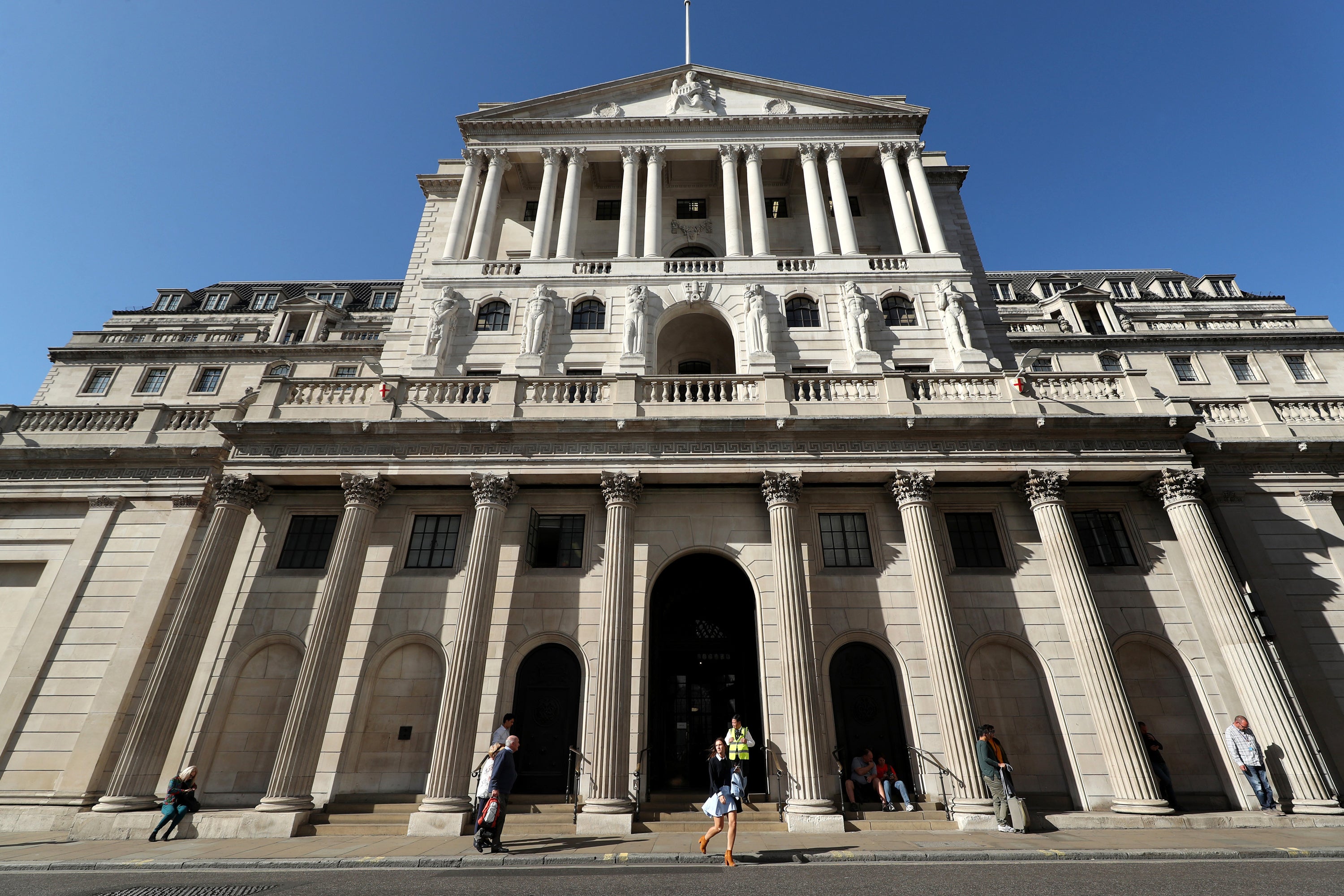Why the Bank of England was wrong to suspend its interest rate decision
Commerce doesn’t sleep, and we’ll all be at work again on Monday morning. In the midst of a cost of living crisis, the MPC should be doing its job, too, writes James Moore


We’re all aware that the nation is officially in mourning and why. The political cut and thrust is on hold, and that makes sense. Postal workers have suspended their strike action, to their great credit – especially when you take into account the intense pressure they and their families are under, with inflation at more than 10 per cent.
But both of these are contentious situations, pitching one side against another. The meeting of the Bank of England’s Monetary Policy Committee to set interest rates, for the purposes of addressing that sky-high inflation rate, is quite different.
It is a function of governance, in which the UK’s economic situation is discussed by highly qualified people with reference to detailed reports and forecasts. A vote is then taken, and a decision is made and explained.
If the economy had been more or less suspended, and most of us were in the middle of an extended public holiday, then postponement might make sense.
But it also might not, and most of us will, anyway, get up and go to work on Monday morning, regardless of whether or not we are in mourning. The wheels of commerce will continue to turn. The markets will continue to move. They don’t sleep for man, woman or monarch.
The UK is also, remember, in the midst of an economic crisis. People are struggling to feed their children and to heat their homes.
Last week the BBC’s Clive Myrie described the prime minister Liz Truss’s statement on energy bills as “insignificant now” by comparison with the reports that were then emerging about the Queen’s health.
Twitter’s reaction was swift, and brutal, and maybe unfair. Myrie was broadcasting live and unscripted, responding to a breaking news story. Mistakes inevitably occur in that sort of situation, especially when you have the challenge of filling up time without much information to impart (which was the situation Myrie was in).
However, the fact also remains that he could scarcely have been more wrong. Truss’s statement could not have been more important at a time when far too many British families are grappling with a hideous dilemma: heat or eat.
No one should face a dilemma like that in a country as wealthy as this one. The prime minister’s decision to freeze energy bills means that fewer people will find themselves on the horns of it. It was the right decision. Exempting energy companies from a windfall tax in favour of placing the bill with ordinary taxpayers through sky-high borrowing, not so much.
Nor does it entirely eliminate the dilemma I mentioned. The headline rate of inflation – to which energy prices contribute – will be lower as a result of the freeze. But it will still be high – too high for some families to cope. The cost of living crisis has not gone away.
The sting in the tail of the energy price freeze is that it is also a stimulus. It will free up a lot of spending power among more fortunate Britons, who will derive by far the greatest benefit from the decision not to target the energy price assistance towards those less able to manage.
This is before a possible emergency Budget, in which the chancellor, Kwasi Kwarteng, will likely announce still more borrowing to fund tax cuts for the wealthy, which will further stoke inflation.
The Bank is being lined up to take the blame if this gets messy, as it probably will. Team Truss damped down the attacks on its independence, and threats to change the MPC’s mandate, when their candidate started looking like a sure thing.
But don’t imagine that the threats have gone away. If it becomes convenient to the new prime minister, she or her proxies will start throwing bricks again.
So, yes, the MPC should hold its meeting. The decision is too important, and the matter too serious, to let it ride. The City is expecting a 0.75 per cent rise, which will be a gut punch to borrowers coming off fixed-rate mortgages, as well as to businesses. However, the MPC has charted a more dovish course than some other big central banks. Maybe that will continue.
One way or another, we need to know. I’ll give you my view on where the decision should land – and tell you where I think it will land – next week. One thing I am certain of, however: it should have been this week.






Join our commenting forum
Join thought-provoking conversations, follow other Independent readers and see their replies
Comments